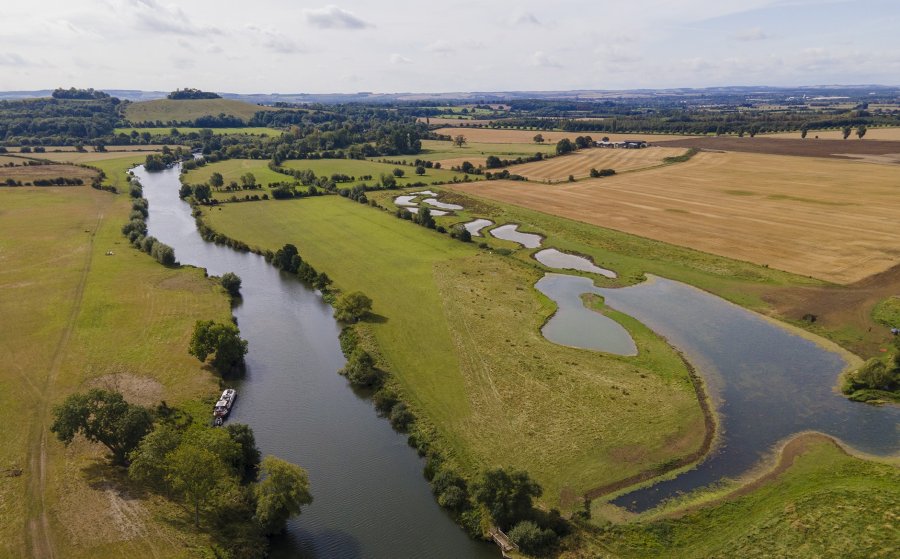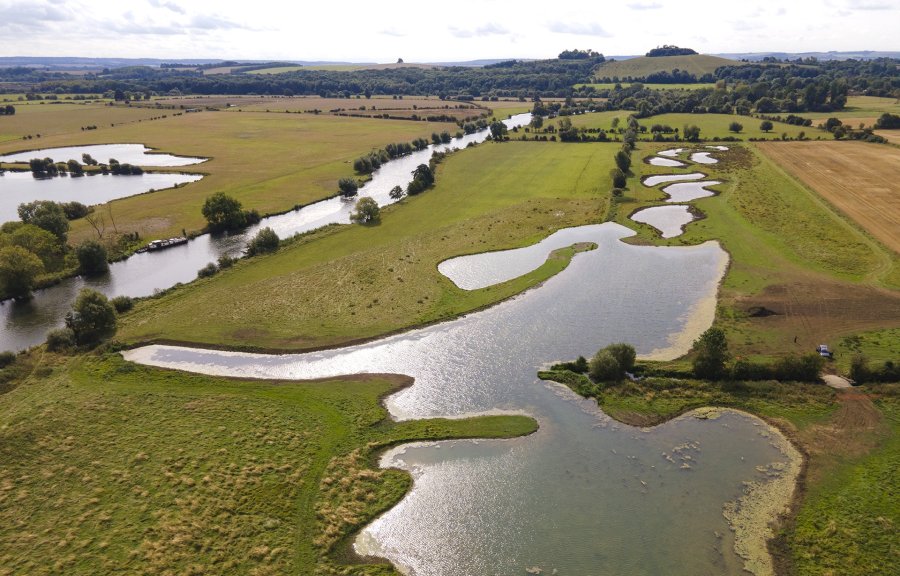
Wetland birds and other wildlife are now visiting a new habitat which has been recently created on farmland situated on the banks of the River Thames.
With world leaders attending COP26 in Glasgow, an Oxfordshire charity is showcasing its innovative environmentally-friendly farmland project, while urging other landowners to follow suit.
The new wetlands aim to tackle environmental challenges such as improving water quality, boosting biodiversity, capturing carbon and preventing flooding.
The on-farm project, named River of Life II, is the largest wetland habitat-creation initiative of its kind on the River Thames.
Construction of the new habitat - the size of six football pitches - has been led by Earth Trust, an environmental charity based in Oxfordshire, in partnership with two landowners, Church Farm Partnership and the Hurst Water Meadow Trust.
Both Earth Trust and Church Farm actively farm the land around the wetlands, and they say the project shows that green solutions can be created without affecting food production.
The River of Life II project has also created sixteen new ponds, seven backwater channels, with1.6 hectares of wet woodland soon to be created.
According to the organisations, the wetlands will help slow down and filter water by trapping sediments and removing pollutants from the water – also creating new homes for wildlife.

Tufted ducks, herons, kingfishers, flocks of geese, kestrels and even otters have been seen in the last week alone.
As the impact of climate change intensifies, the danger of flooding is more likely. It is expected that these wetlands and the surrounding floodplain will act as natural flood management solutions.
Jayne Manley, Earth Trust chief executive, said: "We’re really keen to show other landowners that farmland can provide multiple benefits to the climate, biodiversity and health and wellbeing.
"We’re working with the Environment Agency and other experts to help us measure the carbon and other benefits from this beautiful new wetland.
"If we can demonstrate to other landowners along the Thames how these projects can make a difference, then the impact on the environment would be even more significant.”
